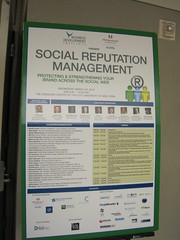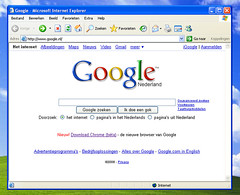By Carl Weiss
You worked long and hard
to build your reputation and your business.
Years of planning and tens of thousands of dollars have gone into
building your brand. You have achieved a
level of trust among your customers that is beyond reproach. Or so you think. But all of that can be undone with the click of
a mouse by a disgruntled customer or by a wily competitor. Welcome to the age of digital reputation
management.
In today’s wired world
everyone has become information junkies.
Whether you like it or not, all kinds of
information about you and your
business is floating around in cyberspace waiting to be found by anyone
perusing a search engine, a social net or any kind of portal that deals in
reviews of businesses. This means that
anything derogatory about you, your business, an employee, or a product on your
shelves is fair game. Was a customer
served a plate of linguini in your establishment that we beyond al dente? That can be broadcast on any number of review
sites in realtime. Have you or one of
your employees been charged with DUI?
That can make the rounds of the social nets with alarming speed. Unlike in the past, where a local company run
by shady operators or offering shoddy customer service could ply their trade
with impunity, today the emperor wears no clothes. This means that you can run, but you can’t
hide in the information age. This is a
good thing for consumers and reputable businesses, since who wants to get tarred
with someone else’s brush.
However, there is also a dark
side to reputation management that all too many reputable businesses find out about
the hard way. Like it or not, it is all
too easy for your reputation to be damaged or even destroyed by erroneous or malicious information. Does your business have a
name similar to a competitor with a less than sterling reputation? Then it is not impossible for a disgruntled
customer to file a complaint on a review portal or social network that targets
your business by mistake. Does someone
else in your town have the same name as you?
If they get into trouble with the law there is a high probability that
your good name can be dragged through mud along with theirs. Have you recently fired someone in your employ? If they feel in the least way slighted by the termination, this can open an ugly can of worms that can take on a life of its own in cyberspace.
| 60 Minutes (Photo credit: Wikipedia) |
Think this can’t happen to
you? In a broadcast on 60-Minutes this
past Sunday, a businesswoman had her credit destroyed by a mistake on her
credit report that was clearly a case of mistaken identity. Not only did the report list a different name
than that of the responsible party, but the attorneys for the guilty party even provided
a letter stating that the businesswoman was not responsible for the outstanding
debts of the other party. Yet even after all this the credit
reporting agencies refused to remove the erroneous information and restore her
good name until they were sued in federal court. The 60-Minutes piece went onto inform the
public that this was not the exception but the rule in the credit reporting
industry where you are presumed guilty even if you have proof of your
innocence.
The online reputation
industry operates under a similar set of rules. Once a complaint has been filed, it is nearly
impossible to redress, let alone remove.
This makes it exceedingly impossible for legitimate businesses to
operate, since as the saying goes, “You can’t please all the people all the
time.” Trying to get a bad review
removed from a social net or review site can be all but impossible. With many review sites and social nets there
is no way for you to pick up the phone and call customer service because there
is no customer service number. Ever
tried to call someone at Facebook? There
is no such number. While you can place a
call to Google, being able to get them to remedy or erase an error can take
weeks or even months. (It took nearly
three months for our company to get Google to change the address of a client of
ours who had moved his business from one county in Florida to another.)
Worse yet is the fact that an
underhanded competitor can use this very loophole to attack your business. Ever see an online complaint against a business that
had been posted anonymously? There is a
high probability that it was posted by a competitor. When it comes to mudslinging, politicians are
not the only people who know how to play the game. With the current lack of checks and balances
on most social networks and review portals, it is all too easy for the
competition to turn a system that was meant to protect the consumer into one
that can be used to attack any business with impunity.
The other salient fact is
that with hundreds of places to dish dirt online, it is a Herculean task to
police your
reputation. This has spawned
an entire industry called reputation management that is tasked with monitoring
and identifying posts about client businesses.
This also means yet another expense for participating businesses since
these services charge anywhere from $99 per month to $999 per month depending upon
the level of service selected. Even
paying top dollar doesn’t guarantee that these firms can steam clean your
online reputation, since they are forced to play by the same rules as everyone
else.
All that you or I or any
high-priced consultant can do to mitigate damage is try to contact the
offending party to try to convince them to remove the negative post, or to post a large number of positive reviews to push the bad review off the first
page. The problem with reviews are that
one bad review is more powerful than ten good ones. The other problem is that most businesses do
not have a protocol in place that encourages satisfied customers to post positive
reviews. Therefore even one complaint
sticks out like a sore thumb. None of
these tactics will redress a choreographed smear campaign by a disgruntled
former employee or underhanded competitor.
I have even seen entire websites commissioned by competitors that were
designed to besmirch the reputation of a targeted business. Try getting that turned off with anything
short of a lawsuit and a court order.
The bottom line is that if
you hope to protect your bottom line you as a business owner need to take
reputation management seriously and do whatever it takes to defend your turf
and protect your good name before one of these weapons of myth destruction
sneaks up on you and does irreparable harm.
Carl Weiss is president of W Squared Media Group a digital marketing agency based in Jacksonville, Florida. You can share your views with Carl every Tuesday at 4 pm Eastern on his Working the Web to Win radio show.
















